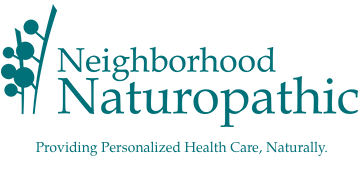
Sometimes out of the blue we receive reminders that change the trajectory of our days; maybe even our lives.
“I need you to take care of yourself, so you can take care of us.”
Those words echoed through the examination room by one of Dr. Miller’s patients, and she was awestruck. Even she needs the reminder to slow down and listen to what her body needs to stay healthy.
We often get so busy in our own lives, taking care of others, that we forget to take care of ourselves. The old adage, put on your oxygen mask first has never seemed more true than now. February is the month where our hearts are exercised in the form of outward love, but maybe it’s time to turn that love inward; to listen to our own hearts so you can carry the hearts of others from a strong and healthy place.
According to the American Heart Association, “Cardiovascular disease is the no. 1 killer of women in the US.” And for that reason alone, women should understand the symptoms of heart disease and how they differ from the symptoms men experience. Heart disease in men and women can present itself very differently, and often women ignore the signs in their bodies or dismiss them as symptoms of something far more benign.
Signs of cardiovascular disease in women might include:
- GI Symptoms (flu like, heart burn, reflux)
- Nausea
- Vomiting
- Shortness of breath
- Chest pain
A good rule of thumb – if you are sitting down while feeling symptoms and they do not resolve with some slow deep breaths or getting up and moving around, call your doctor. Here are some other resources to check out if you are wanting to know more about cardiovascular disease in women: facts, symptoms, living with heart disease.
Women experience heart disease in different ways than men. For example, physiologically, while men are more likely to experience disease in their coronary arteries, women experience heart disease more often in their microvascular system (the smaller arteries that branch out from the coronary arteries). When experiencing a heart event, women might feel an impending sense of doom. So, if something isn’t feeling right and it is not resolving quickly, it would be wise to reach out to a doctor. Women have excellent intuition, but often fail to acknowledge it. If something feels wrong, don’t second guess yourself. Get checked out.
Neighborhood Naturopathic offers a variety of services that complement a conventional approach to heart health. Here are a few things we can do to support you as you focus on repairing and preserving your heart today and into the future.
TESTING
There are many different kinds of statins and pharmaceuticals that can help stabilize your heart, but the variety of options can overwhelm people. It’s important to know what works best for your body, so you can put your mind at ease.
Because we get so many patients at the point of being medicated with pharmaceuticals for heart disease, we offer pharmacogenomic testing (how your body metabolizes pharmaceutical medications based in your individual genetic material). This testing can be particularly helpful in relieving the anxiety around choosing how to proceed with treatment.
We see lots of high cholesterol at Neighborhood Naturopathic Our patients wonder why this is happening and how it is affecting their bodies. Our testing can help determine the cause of high cholesterol; is it a production issue or absorption issue (gut)? Determining the cause of a health concern enables the doctors at Neighborhood Naturopathic to put together effective, personalized treatment protocols that bring results.
In addition to pharmacogenomic and thorough lipid evaluations, specific nutrient testing can help determine deficiencies in the body that may contribute to decline in cardiovascular health. This testing helps us create a nutrition plan for our patients that supports a heart healthy lifestyle.
DIET AND LIFESTYLE
Heart health depends on keeping inflammation in the body in check, among other things. A few ways that naturopathic medicine offers support for an anti-inflammatory lifestyle is through:
- Exercise – Make an effort to move your body every day for cardiovascular health. Set a goal of moving your body for at least 150 minutes each week.
- Sleep – Adults should aim for 7-9 hours of sleep each night. Sleep is vital for repair to cells, tissues and blood vessels. Poor sleep, or lack of sleep, can significantly increase your risk for cardiovascular disease.
- Diet – A heart healthy diet will often limit sugar, salt, excess (trans) fats, processed foods and alcohol. A heart healthy diet will often consist of a combination of fruits, vegetables, lean protein, fish, legumes, nuts, and whole grains.
In addition, you could add certain supplements to your daily routine. Three that we suggest for heart health are:
- CoQ10 – We now offer CoQ10 injections in the IV Clinic. CoQ 10 is an enzyme essential in producing ATP. ATP helps contract muscles (for instance, the heart) but it naturally declines with age.
- Fish Oil – Fatty acids are anti-inflammatory and they have the capability to affect blood viscosity.
- RYR – A combination of red yeast rice and CoQ10 that can lower cholesterol.
Look for these supplements offered via our IV Clinic or through our online dispensary.
If you are a woman concerned with your cardiovascular health, don’t be complacent about your symptoms. They may not be what you would expect. Listen to your body, listen to your intuition, and take control of your heart health now, so you can continue to take care of the ones you love most.
Neighborhood Naturopathic uses holistic and natural medicine, proven treatments and alternative therapies to help your body heal. If you live in the Minneapolis/ St. Paul area and are curious about a naturopathic approach to your health or have questions about supplements, or IV Nutrient Therapy that might support your overall wellness, click here to schedule or call (612) 259-8529.
If you are interested in learning more ways that naturopathic medicine supports health and wellness in your life, sign up for our monthly newsletter where we give insider tips and tricks about living well.
